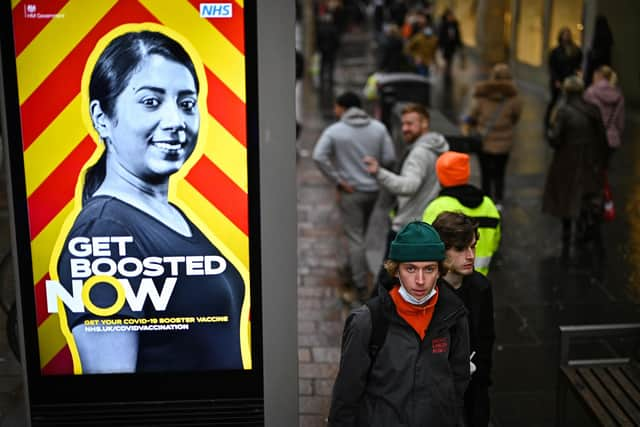Covid Glasgow: Does Omicron affect taste and smell? Symptoms of Covid variant explained - and how long they last
and live on Freeview channel 276
Wednesday’s figures from Public Health Scotland show that 6027 cases of the Covid-19 variant had been identified in Glasgow, following a huge surge over the New Year break.
All Glasgow neighbourhoods are now ranked as Covid-19 hotspots, with every district registering 400 or more Covid-19 cases per 100,000 residents.
Advertisement
Hide AdAdvertisement
Hide AdIt has had a impact on various services, including NHS Greater Glasgow and Clyde and ScotRail.
First Minister Nicola Sturgeon has introduced some tougher measures in response, limiting the number of spectators at events, and said new control measures could be introduced ‘within weeks’.


However, she has also cut the amount of time people need to self-isolate, providing they do not have a fever and they record two negative lateral flow tests, on days six and seven.
What are the Omicron symptoms?
It has been reported that Omicron causes milder symptoms than other Covid-19 variants, with fewer people dying or need hospital treatment.
Advertisement
Hide AdAdvertisement
Hide AdEvidence is also growing that Omicron appears to cause less damage to the lungs than other variants.
While the three official symptoms for Covid-19 are still a new cough, loss of taste/smell and a high temperature, people have reported that Omicron has given them cold-like symptoms, including a sore throat, runny nose and a headache.
The main symptoms of the Omicron variant are:
- Runny nose
- Headache
- Fatigue (mild or severe)
- Sneezing
- Sore throat
Other common reported symptoms included brain fog and loss of appetite.
How long does Omicron last?
As with other Covid-19 strains, symptoms of Omicron should typically clear within a few days.
Advertisement
Hide AdAdvertisement
Hide AdIt takes between five and six days on average for someone who is infected with Covid-19 to experience any symptoms, according to the World Health Organisation (WHO).
However, symptoms can start to appear from one to 14 days.
If you get a positive test result, it likely means that you had Covid-19 when the test was taken.
The time taken to test negative after contracting coronavirus will depend on the severity of the case.
Comment Guidelines
National World encourages reader discussion on our stories. User feedback, insights and back-and-forth exchanges add a rich layer of context to reporting. Please review our Community Guidelines before commenting.
